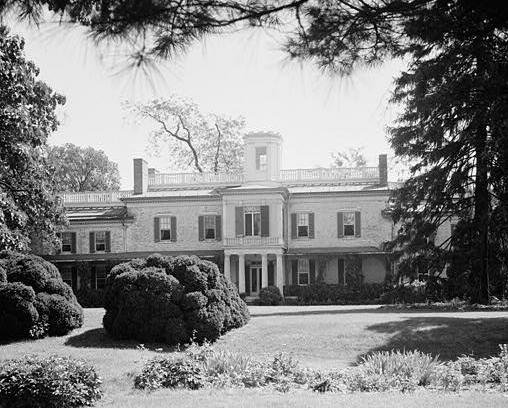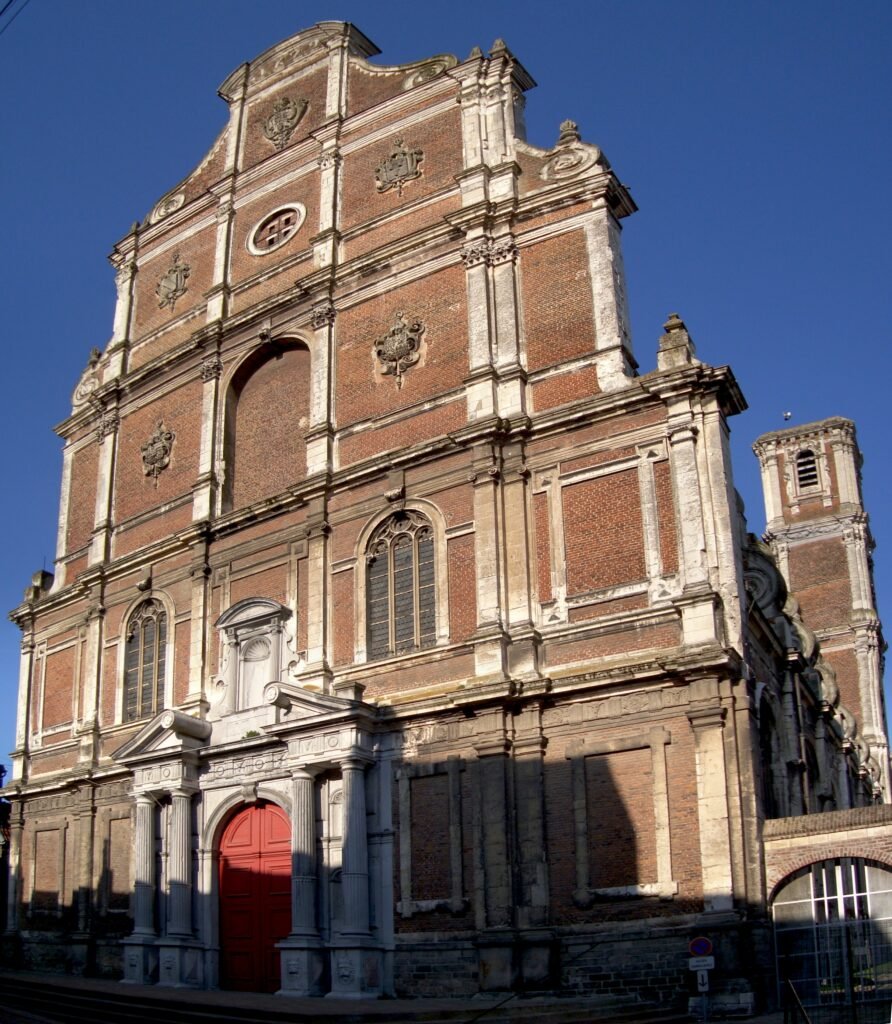Charles Carroll was The Wealthiest Revolutionary and Fearless Freedom Advocate. Although Charles Carroll is less renowned than some Founding Fathers, he played a vital role in shaping the United States. This 5000-word blog post explores his multifaceted journey, touching on his wealth, Catholic background, European education, support for nonviolent resistance, advocacy for American independence, pseudonymous writings, Committee of Correspondence membership, unique role as the sole Catholic signer of the Declaration of Independence, remarkable longevity, and complex views on slavery and emancipation.
Let’s dive into the life and contributions of Charles Carroll, a man embodying American ideals: independence, religious tolerance, and resilience.
1. Wealthiest of All Founding Fathers
Charles Carroll’s life began with a significant advantage that set him apart from many of his contemporaries: his immense wealth. Born into a wealthy Maryland family, Carroll inherited a vast estate that included numerous plantations and thousands of acres of land. This wealth provided him with the financial independence and resources to become a key figure in the American Revolution.

The Carroll family’s wealth was primarily derived from their extensive land holdings, including estates such as Doughoregan Manor. This affluence not only allowed Charles Carroll to live comfortably but also provided him with the means to support the revolutionary cause financially.
2. Catholic Background in a Predominantly Protestant Society
In a predominantly Protestant society that viewed Catholics with suspicion and discrimination, Charles Carroll stood out as a devout Roman Catholic. During the colonial era, Catholics faced significant political disenfranchisement and were often denied basic rights. Despite these challenges, Carroll remained steadfast in his faith and worked tirelessly to promote religious freedom and tolerance.
Carroll’s Catholic background had a profound influence on his political views. He believed in the importance of religious diversity and the rights of individuals to practice their faith freely. His commitment to religious freedom would become a cornerstone of his political philosophy.
3. Education in Europe
Charles Carroll’s education played a pivotal role in shaping his political thought. He was sent to Europe for his studies, where he had the opportunity to immerse himself in Enlightenment ideas that were sweeping across the continent.

Carroll attended the Jesuit College of St. Omer in France and later continued his education in England. Exposure to the Enlightenment’s emphasis on reason, liberty, and individual rights had a profound impact on his worldview. These European experiences helped mold Carroll into a thinker who would play a crucial role in the American Revolution.
4. Support for Nonviolent Resistance
In the early stages of the conflict with Britain, Charles Carroll advocated for nonviolent resistance as a means of protest against British policies. He believed that economic pressure, such as non-importation agreements, could effectively convey the colonists’ grievances without resorting to violence.
Carroll’s support for nonviolent resistance reflected a desire for a peaceful resolution to the tensions between the American colonies and Britain. However, as events unfolded, his stance would evolve to align more closely with the growing movement for independence.
5. Pseudonymous Writing
Charles Carroll, like many of his contemporaries, engaged in political debates through pseudonymous writings. Under the pseudonym “First Citizen,” Carroll exchanged arguments with “Antillon,” a loyalist, in Maryland newspapers. These debates provided a platform for Carroll to articulate his opposition to British policies, including taxation without representation.
The use of pseudonyms allowed Carroll to express his views openly without fear of reprisal, contributing to the public discourse that was crucial in shaping public opinion in the lead-up to the American Revolution.
6. Member of Maryland’s Committee of Correspondence
Charles Carroll was not content with merely expressing his opinions through pseudonymous writings. He actively participated in Maryland’s Committee of Correspondence, a vital component of the colonial resistance against British rule.
The Committee of Correspondence served as a network for sharing information and coordinating opposition efforts among the colonies. Carroll’s contributions to this committee helped strengthen the bonds between the colonies and facilitate their united response to British oppression.
7. Advocate for Independence
While Charles Carroll initially held hope for reconciliation with Britain, he eventually became a fervent advocate for American independence. Recognizing the inevitability and necessity of breaking away from British rule, he joined the ranks of those who championed the cause of liberty and self-determination.
Carroll’s transformation from a proponent of nonviolent resistance to a staunch advocate for independence was emblematic of the changing political landscape and the intensifying desire for autonomy among the American colonists.
8. Only Catholic Signer of the Declaration of Independence
Charles Carroll’s signing of the Declaration of Independence holds special significance. He was the only Catholic signer, breaking the barriers of religious exclusion in the political realm. His signature on this historic document symbolized the diverse and inclusive nature of the American struggle for freedom.
Carroll’s presence among the signatories demonstrated that the fight for independence transcended religious and cultural divides, emphasizing the shared commitment to the principles of liberty and self-governance.
9. Longevity
Remarkably, Charles Carroll lived until the age of 95, making him the longest-lived signatory of the Declaration of Independence. His longevity allowed him to witness the early growth and development of the United States, from its tumultuous beginnings to a fledgling nation.
Carroll’s long life provided him with a unique perspective on the nation’s evolution, and his wisdom continued to be sought after long after the Revolutionary War had concluded.
10. Slavery and Emancipation Views
Charles Carroll’s stance on slavery reflects the complexity of his beliefs and the society in which he lived. As a slave owner himself, he was representative of the economic interests of the Southern colonies.
However, Carroll also supported the idea of gradual emancipation. He believed that slavery should be phased out over time, aligning with his evolving belief in liberty and justice for all. While his views on this matter were not without controversy, they illustrate his commitment to principles of freedom and equality.
Conclusion
In the life of Charles Carroll, we find a compelling narrative of wealth, faith, education, and political evolution. His journey from a wealthy plantation owner to a passionate advocate for American independence showcases the transformative power of conviction and the enduring legacy of those who played pivotal roles in the founding of the United States.
Charles Carroll’s commitment to religious tolerance, his advocacy for freedom, and his longevity serve as enduring reminders of the principles upon which the nation was built. His complex views on slavery underscore the challenges and contradictions faced by individuals in a society striving for liberty and justice.
As we reflect on the life of Charles Carroll, let us remember the enduring legacy of this remarkable Founding Father and the contributions of all those who shaped the United States into the nation it is today.
Posts
- Exploring the Rich Tapestry of American History, Culture, and Trivia (15 December 2023)
- Welcome to American Facts 101: Your Ultimate Source for Exploring American History, Culture, and Trivia (15 December 2023)
- Uncovering the Hidden Gems of the USA (15 December 2023)
- Uncovering the Untold Stories of the USA (15 December 2023)
- Exploring the Rich Tapestry of American History and Culture (15 December 2023)
- Revealing America’s Saga: The Untold Chronicles of a Nation (15 December 2023)
- Charles Carroll: The Wealthiest Revolutionary and Fearless Freedom Advocate (15 December 2023)
- Revealing The Bill of Rights: Fortifying Our Precious Liberties! (22 December 2023)
- Benjamin Franklin Exposed: Maverick Creator, Shrewd Diplomat, Timeless Visionary (22 December 2023)
- Revealing Alexander Hamilton: The Visionary Maverick Who Sculpted America’s Future (28 December 2023)
- Jefferson’s America: How a Founding Father Forged a Nation’s Destiny (30 December 2023)
- Father of the Nation: How John Adams Shaped America’s Destiny (1 January 2024)
- Forgotten Trailblazers: Revealing the Covert Champions of the Revolution (3 January 2024)
- America’s Gilded Epoch: A Tale of Swift and Monumental Change (5 January 2024)
- Unveiling the Declaration: A Beacon of Liberty and Hope (6 January 2024)
- The Great Depression: Resilience in the Face of Adversity (11 January 2024)
- Revolutionizing Brilliance: The Daring Leap of America’s Industrial Breakthrough (14 January 2024)
- Navigating the Rugged Terrain of Civil Rights Victory (18 January 2024)
- A Decade of Revolutionary Transformation and Lavish Exuberance (19 January 2024)
- Space Odyssey: America’s Bold Soar into the Celestial Frontier (21 January 2024)
- The Oregon Trail: Pioneers and Perils of the Westward Expansion (26 January 2024)
- The Louisiana Purchase: A Colossal Expansion of America’s Realm (27 January 2024)
- The Profound Influence of Immigration on the USA (28 January 2024)
- The Gold Rush: Dreams and Hardships in the West (9 February 2024)
- The Forbidden Decade: America’s Fervent Quest for Virtue (28 February 2024)
- Swinging Rhythms, Daring Flappers: A New Vision of the American Dream (1 March 2024)
- The Salem Witch Trials: Dread and Justice in Early American Colonies (3 March 2024)
- The Echoes of Liberty – Unveiling Federalist No. 1 (23 March 2024)
- Edward Rutledge: A Vanguard Spirit of Liberty’s Dawn (23 March 2024)
- John Jay: Pioneering Crusader for American Justice (29 March 2024)
- Revolt & Reason: The Untold Power of ‘Cato 1 (1 April 2024)
- Hidden Virtues: George Washington’s Secret Acts of Kindness (9 April 2024)
- How Jefferson’s Love for Meteorology Shaped the White House (9 April 2024)
- Echoes of the Night: Secrets of Navajo Skinwalkers Unveiled (10 April 2024)
- Ghost Ships of the Great Lakes (10 April 2024)
- Lincoln’s Grit: Unveiling the Wrestler-President (11 April 2024)
- Unity or Peril? The Covert Threat of Foreign Interference (14 April 2024)
- Roosevelt’s Midnight Quest: Secrets at the Smithsonian (14 April 2024)
- Revolutionary Ripples: Adams’ Potomac Epiphanies (14 April 2024)
- Washington’s Ale of Liberty: A Pioneering Patriotic Brew (14 April 2024)
- Visionary Rebellion: The Architect of U.S. Freedom (20 April 2024)
- Revealing the Legacy: The Enigma of Anti-Federalist Ideals (21 June 2024)
Categories
Tags
- Bill of Rights
- American history
- governance
- John Adams
- Founding Fathers
- American Revolution
- unsung heroes
- independence
- Great Depression
- resilience
- Gilded Age
- social changes
- Declaration of Independence
- American culture
- national identity
- economic hardship
- American Industrial Revolution
- technological advancements
- key inventions
- industrial growth
- Civil Rights Movement
- racial discrimination
- equality
- 1920s
- Roaring Twenties
- economic boom
- Space Race
- United States
- Soviet Union
- Oregon Trail
- westward expansion
- Louisiana Purchase
- immigration
- diverse cultures
- Gold Rush
- American West
- mining towns
